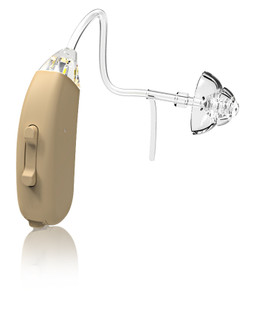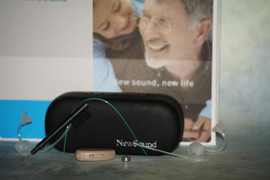Why Hearing Tests are Vital for Children
Posted by DR Paul on Feb 08, 2024
Hearing is one of the most important senses that we have, and it plays a huge role in our everyday lives. For children, hearing is especially important as it helps them to learn, communicate, and socialize. However, hearing loss can occur at any age, and it’s essential to identify it early on to prevent it from impacting a child's development. This is where hearing tests come in – they play a crucial role in ensuring that children’s hearing is healthy and functioning properly. In this blog post, we’ll discuss why hearing tests are vital for children, how they are conducted, and what parents can do to prepare their child for the test.
1) Why are hearing tests important for children?
Hearing tests help identify any potential issues with a child's hearing early on so that treatment can be provided if necessary. Without proper testing, it may be challenging to detect hearing problems in children who may not yet have developed language skills or may not be able to express themselves fully. Early detection allows for intervention such as the use of hearing aids or cochlear implants which can have a significant impact on a child's language development.
2) How are hearing tests conducted?
There are different types of hearing tests available for children depending on their age and developmental stage. For example, visual reinforcement audiometry (VRA) is commonly used with infants and toddlers where sounds are played through speakers or headphones while they watch an animated toy light up when they hear the sound. Play audiometry uses games or toys to get older children engaged while sounds are played through earphones or speakers.
3) What should parents do to prepare their child for a hearing test?
Parents should talk to their child about what will happen during the test so that they feel comfortable and know what to expect. It's also helpful to bring along some favorite toys or snacks to help keep them calm and entertained during the test. Additionally, it's important to make sure that they are well-rested and not sick as this could affect the results of the test.
4) What happens after the hearing test?
After the hearing test, a report will be provided indicating whether a child has normal hearing or if there are any concerns. If there are any issues detected, further testing may be recommended, or treatment options such as hearing aids or cochlear implants may be discussed. It's essential to follow up with any additional appointments or treatments recommended by an audiologist to ensure that a child's hearing is protected and healthy.
Conclusion:
Hearing tests play a critical role in ensuring that children’s hearing is healthy and functioning properly. As parents, it's vital to understand why these tests are important and how they can help identify potential issues early on so that treatment can be provided if necessary. By preparing your child for the test, you can help make the process easier for them while ensuring accurate results. Don't hesitate to speak with an audiologist if you have any concerns about your child's hearing – early detection is key to preventing potential problems from impacting their development.










